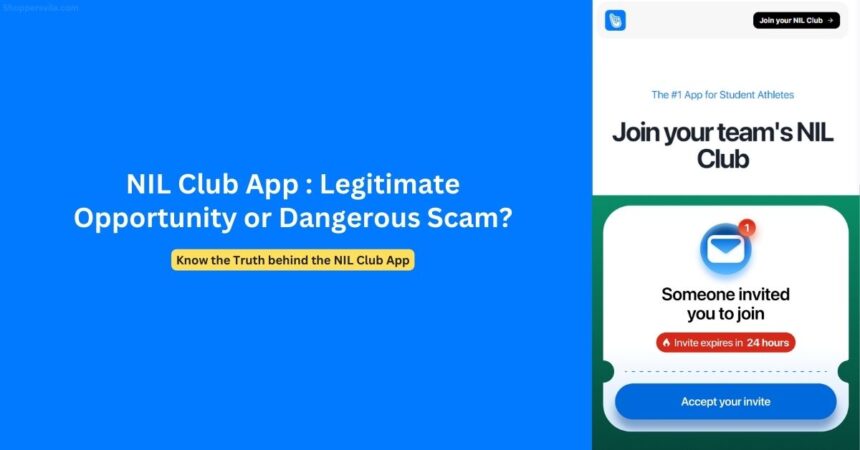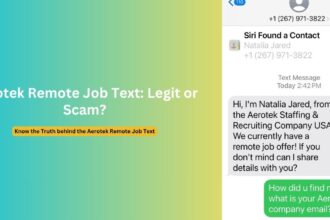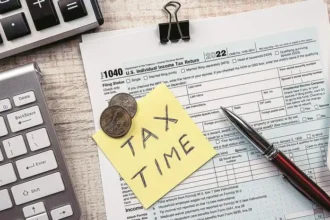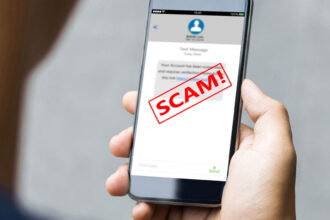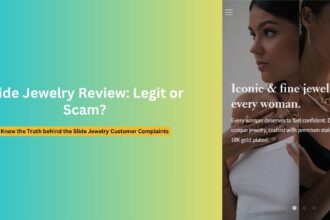In recent months, high school athletes across the country have been receiving mysterious text messages: “Someone from [school name] invited you to join your team’s NIL Club.” These messages, promoting an app called NIL Club, promise to help student-athletes monetize their name, image, and likeness (NIL). But as schools and athletic associations issue stern warnings, students and parents are left wondering: Is NIL Club a legitimate opportunity or a potential scam that could jeopardize athletic eligibility?
The Rise of NIL Club App
NIL Club is a mobile application developed by YOKE Global Inc., first released in May 2023. According to its Google Play Store description, the app positions itself as “the best way for student-athletes to earn NIL money” by connecting them with brands and enabling fans to support teams through subscriptions. With over 10,000 downloads and regular updates (most recently to version 4.1.3 in April 2025), the app has gained traction among students eager to capitalize on NIL opportunities.
Mick Assaf, co-founder of NIL Club, describes the platform as student-run and designed to help “high school students, not just athletes, monetize their digital content.” The business model is subscription-based: students create exclusive content—videos, updates, and articles—that sits behind a paywall. Supporters pay a subscription fee to access this content, with proceeds supposedly going directly to the students.
“Students create and share content behind a paywall that subscribers can access,” Assaf explained in a statement to KWCH News. “The proceeds from these subscriptions go directly to the students involved in creating this online experience.”
How NIL Club Operates
The app employs a three-step process, according to its marketing:
- Students join their team’s NIL Club
- They connect with brands for NIL deals
- They earn money alongside teammates
Once enrolled, student-athletes create content that only paying subscribers can access. The company claims this content creation—rather than athletic performance—is what generates revenue. NIL Club emphasizes that there is “no affiliation with schools or use of school resources” and that the platform operates independently.
However, the marketing approach has raised eyebrows. Many students report receiving unexpected text messages claiming someone from their school or a nearby school has invited them to join. When they investigate further, they often find no clear connection to whoever supposedly invited them.
One high school basketball player described their experience on Reddit: “I just got a message that said ‘Hey (My name)- someone from Hagerty invited you to join your NIL Club.’ And a link to join, it wasn’t my team.” The student’s coach suggested “maybe someone is looking at other rosters in my state and trying to connect.”
Red Flags and Warnings
Despite NIL Club’s claims of legitimacy, numerous educational institutions and athletic organizations have issued explicit warnings against the app:
- Briarcrest Athletics (@BCHS_Saints) warned: “Do NOT download the ‘NIL Club’ app or respond to any text messages from this network. It could jeopardize eligibility and is not associated with any approved NIL programs.”
- The Georgia High School Association (GHSA) issued an official statement cautioning that using the app might violate their eligibility rules: “There can be NO use of the Intellectual Property of the school or association (school name, facilities etc.) in the establishment and operation of an NIL club. By doing so, your athletes could be deemed ineligible per the by-law.”
- Clearwater Schools in Kansas similarly warned students against joining after text messages circulated among their student body.
Beyond eligibility concerns, consumer complaints have mounted. The Better Business Bureau (BBB) has given NIL Club a 1-star rating, with subscribers reporting “a lack of communication and an inability to get refunds,” according to Taelor Hicks with the BBB Atlanta.
The app’s data practices have also come under scrutiny. Multiple Reddit users reported concerns that the app requests access to contacts and then sends messages to those contacts, potentially without clear user consent. “It’s the app itself that’s a scam,” wrote one user. “Everyone said it’s a scam that takes advantage of the access to your contacts list and sends messages to everyone asking for them to donate to your team.”
The Eligibility Question
Perhaps the most significant concern for student-athletes is whether participation could affect their eligibility to compete in high school sports. Unlike college athletics, where NIL deals became permissible in 2021, high school athletic associations often maintain stricter amateurism rules.
The GHSA’s statement makes clear that using school intellectual property (names, logos, facilities) in NIL arrangements is prohibited and could make athletes ineligible to compete. Other state athletic associations likely have similar regulations, though specific rules vary by state.
When KWCH News reached out to the Kansas State High School Athletic Association about potential eligibility impacts, they had not received a response at the time of publishing—leaving Kansas athletes in a state of uncertainty.
The Company NIL Club’s Defense
NIL Club has pushed back against criticism, attributing many concerns to misunderstandings about their business model. In a statement, co-founder Mick Assaf emphasized several points:
- Subscription Model: “NIL Club operates on a subscription model, not a donation-based system. Supporters… subscribe to access exclusive content created by participating students. Subscriptions can be canceled at any time without any further charges.”
- Independent Operation: “There is no affiliation with schools or use of school resources. Instead, this is an independent platform that gives students an opportunity to share content with their supporters and be compensated for it.”
- Addressing Complaints: “While there have been some complaints, primarily related to misunderstandings of how our subscription system works, the NIL Club is not a scam. It is a legitimate platform providing students with a way to earn money based on content creation rather than athletic performance or donations.”
- Scale and Satisfaction: “With tens of thousands of paying customers each month, NIL Club is confident in the value and trust it provides to students and their supporters. While there are a very small number of negative reviews on the Better Business Bureau (BBB), we want to stress that these reviews do not represent the overall satisfaction of our users.”
The company has also published educational content on their blog about avoiding scams, phishing, and spam—ironically advising users to “be wary of repetitive invitations to support or join NIL Clubs” and to ignore unsolicited messages, despite their own aggressive recruitment tactics.
The Reality for Student-Athletes
For students considering the app, the picture remains murky. One alleged coach on Reddit claimed their team uses NIL Club but only makes “maybe $10/week each.” Other users reported downloading the app out of curiosity but then deleting it after becoming suspicious.
“I looked at the poor reviews and everyone said it’s a scam,” wrote one Reddit user who investigated further. “I hadn’t known this yet when I did give them access to my contacts list, however I didn’t complete signing up because I was suspicious.”
Another user was far more critical: “The app itself is no different from Only Fans. Piece of shit promoting a celebrity lifestyle to highschoolers who should be focusing on other things.”
While some student-athletes may indeed earn money through the platform, the potential risks—from eligibility concerns to privacy issues—have led many educational institutions to advise complete avoidance.
Frequently Asked Questions (FAQs)
1. What is the NIL Club app?
NIL Club is a mobile application developed by YOKE Global Inc. that claims to help high school student-athletes earn money through their name, image, and likeness (NIL). The app uses a subscription model where students create exclusive content that supporters can access by paying a fee. The app also claims to connect students with brands for endorsement opportunities.
2. Is the NIL Club app Legit or a Scam?
While NIL Club is a real application (not malware), numerous high school athletic associations and schools have warned against using it. The Better Business Bureau has given it a 1-star rating due to consumer complaints about refunds and communication issues. Most importantly, using the app could potentially violate high school athletic eligibility rules in many states.
3. How does the NIL Club app make money?
NIL Club operates on a subscription model where fans, family members, and supporters pay to access exclusive content created by student-athletes. The company presumably takes a percentage of these subscription fees, though the exact revenue split is not clearly disclosed in their public materials.
4. Will joining NIL Club affect my athletic eligibility?
Multiple high school athletic associations, including the Georgia High School Association, have explicitly warned that participation could jeopardize eligibility. This is primarily because high school amateurism rules often prohibit using school intellectual property (names, logos, facilities) in NIL arrangements. Rules vary by state, so student-athletes should consult with their school’s athletic department before considering any NIL opportunities.
5. How is NIL Club different from college NIL programs?
College athletes gained the legal right to profit from their name, image, and likeness in 2021 following NCAA policy changes and state legislation. High school athletics, however, operate under different, often stricter, rules governed by state athletic associations. NIL Club appears to be attempting to extend the college NIL model to high schools, but without the legal framework that protects college athletes’ eligibility.
Conclusion: Proceed with Extreme Caution
The evidence surrounding NIL Club presents a concerning picture for student-athletes, parents, and educators. While the company insists it offers legitimate opportunities for students to monetize their digital presence, the warnings from schools and athletic associations cannot be ignored.
For high school athletes, the risk to eligibility may far outweigh the potential reward of modest earnings. The reported aggressive marketing tactics, concerning privacy practices, and consumer complaints further suggest that extreme caution is warranted.
Before considering any NIL opportunity, student-athletes should:
- Consult with their school’s athletic department about eligibility implications
- Research their state athletic association’s specific rules regarding NIL activities
- Be wary of unsolicited messages promising easy money
- Protect their contact information and personal data
As the NIL landscape continues to evolve, students and parents should remember that legitimate opportunities will come with transparency, proper documentation, and explicit compliance with eligibility rules. When it comes to NIL Club, the collective warnings from educational institutions suggest that clicking that invitation link might be a decision many student-athletes would regret.
